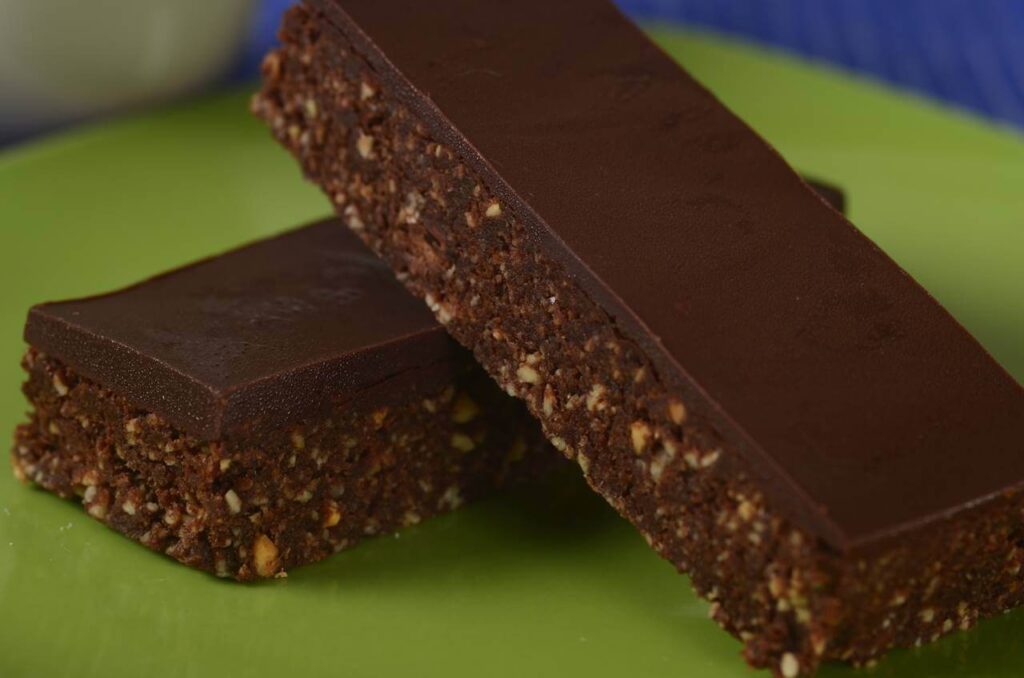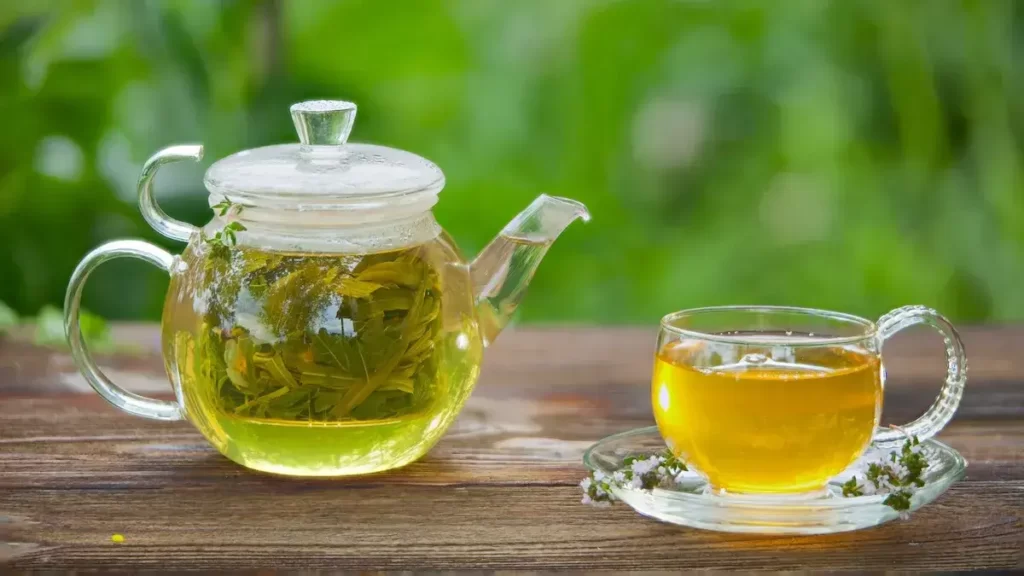As a trip leader at DarkGreen Adventures (DGA), I answer this query — “What should I eat during a trek?” — more times than I can count. Before you start imagining an episode of “Man vs Wild,” let me clarify — this article isn’t a survival guide for extreme mountaineers or high-altitude expeditions. It’s meant for regular Indian trekking scenarios, in rural or mountainous regions, where base villages often serve meals and where beginner trekkers carry some essentials from home.
We often spend more time planning what clothes to pack or which shoes to wear than thinking about what to eat during the trek. But the right nutrition can make or break your trek experience. In this guide, I’ll break down practical tips and suggestions from years of trekking across India, with a specific focus on foods that are accessible, easy to carry, and trek-friendly.

Understanding the Basics: Indian Food During Treks
Grains and Pulses Rule the Mountains
In most Indian villages — especially those that serve as trek bases — grains and pulses dominate the food. Dal-chawal, roti-sabji, khichdi, and the like are common. These provide ample carbohydrates, which are essential for energy. But the **concern is not carbs — it’s the lack of other nutrients like proteins, healthy fats, and micronutrients.
Moreover, curries and gravies are often overly spicy, which might not suit everyone’s digestive system, especially during physical exertion at altitude.

What Your Body Actually Needs During a Trek
There’s a misconception that food is the most important aspect of a trek. In reality:
- Hydration is more crucial than food.
- Moderation is key — avoid overeating or indulging in heavy meals.
- Cleanliness and hygiene trump taste and spice.
Trekking isn’t the time for feast — it’s a time to fuel smartly.

Foods to Avoid During Treks
Let’s first start with the common foods people carry — and why you should avoid them.
Alcohol – The Worst Thing to Carry
Yes, I enjoy a celebratory drink post-trek too. But alcohol during a trek is a big NO.
- It dehydrates you
- Reduces your ability to acclimatize
- Lowers core body temperature, despite the illusion of warmth. Save the celebrations for the end of your trek, whether you’re visiting destinations like the Rann of Kutch Festival or any other adventure.
Save the celebrations for the end.
Soda/Colas – Avoid Completely
They’re everywhere — even in the smallest of hill villages. But they’re:
- Nutrient-dead
- Dehydrating
- Full of sugar and gas
They’ll sap your energy instead of boosting it. Stick to healthier options like Mauritius Holiday Packages for a more hydrating experience.
Chips, Wafers, Namkeens – Avoid
These processed snacks are low in nutrition and lead to:
- Acidity
- Bloating
- Loss of appetite
And all they offer is empty calories. Avoid these during your trek in places like Bhutan or Arunachal.
Maggi and Noodles – Avoid Frequent Consumption
They’re easy to cook and tasty, but don’t be fooled:
- High in trans fats and refined flour
- Low in actual nutrition
- Masala packs? Mostly MSG and artificial flavours
Use only in emergencies — not as regular trek food.
Fried Foods (Samosa, Pakoda) – Avoid
Yes, they’re tempting at the village tea stall. But:
- Cooked in reused oil
- Wrapped in refined flour
- Zero fibre, high cholesterol, and hard to digest
Limit to one or two bites if you must.

Foods You Can Eat in Moderation
Biscuits & Cookies – Occasionally Okay
Carry small packs of low-sugar, whole grain biscuits.
Avoid cream-filled or overly processed options. Good for short breaks.
Chocolates & Cheese – Okay in Moderation
Dark chocolate and hard cheese can provide energy, but avoid excess.
Opt for energy bars instead for a healthier alternative. These snacks could be great for a trip like the Northern Lights in Norway.
Tea & Coffee – Generally Good
Especially helpful in cold weather.
Avoid excess sugar or caffeine
Green tea, lemon tea, and black coffee help with alertness and digestion

Recommended Trekking Foods
Roti-Sabji, Dal-Chawal – Solid Choices
- Traditional meals are nutrient-rich, familiar, and filling
- Ask for less oil, less spice
- Embrace local vegetables, freshly boiled rice, and properly roasted rotis
This is what we often get at base villages or homestays, and it works perfectly!
Chicken/Mutton/Fish – Good Source of Protein
- Go for organic/desi poultry if possible
- Watch out for gravy-loaded servings with minimal meat
If you’re a non-vegetarian, this can be a great recovery meal post-trek.
Juice Packets – A Practical Hydration Source
Fresh juice may not be available, so carry packaged juices without added sugar.
- They’re germ-free, hydrating, and provide electrolytes and vitamins
- Just make sure they’re sealed properly and don’t consume too many
Milk, Dahi, Buttermilk – Highly Recommended
- Buttermilk is great in hot climates
- Spiced hot milk works wonders in cold treks
- Carry instant spice mix (ginger, cardamom, etc.) for flavor and nutrition
Eggs – One of the Best
- Eggs are nutrient-dense, portable, and widely available
- Avoid oily or spicy omelets — opt for boiled or lightly scrambled versions
Local Drinks: Nimbu Pani, Kokum, Buransh
- These are rich in vitamin C, antioxidants, and aid digestion
- Great alternative to artificial beverages
- Avoid added sugar or soda
Dry Fruits – Best Travel Snack
- Compact, non-perishable, and loaded with energy
- Mix of almonds, cashews, dates, figs, raisins, pistachios
- Just a handful every few hours will keep you going strong
Electrolyte Mix (Electral, Enerzal) – A Must-Carry
Don’t confuse Glucon-D or Tang with actual electrolytes — they don’t serve the same purpose
Hydration is the #1 priority
Mix a packet into your water bottle and sip every hour

Trekking Nutrition Plan by DGA
Before the Trek
- Eat complex carbs: upma, poha, oats
- Hydrate well the day before
- Avoid oily or spicy food the night before
During the Trek
- Small meals every 1.5–2 hours
- Carry energy bars, trail mix, fruits, dry fruits
- Sip water continuously, not in gulps
- Take breaks to rest and munch
After the Trek
A cup of hot herbal tea or buttermilk helps digestion
- Replenish with protein-rich meals: dal, paneer, eggs, chicken
- Hydrate well
- A cup of hot herbal tea or buttermilk helps digestion

Chicken/Mutton/Fish: Good
A good source of protein and other nutrients. You can ask for desi/organic chicken which is more nutritious. It is the cooking and serving method which is a spoiler. In most villages, you will get a small piece of meat soaked in lots of spicy gravy.

Conclusion
The right food choices can amplify your energy, prevent health issues, and make your trek more enjoyable. Trekking doesn’t demand exotic nutrition but it does require smart, simple decisions. Focus on hydration, carry trek-friendly snacks, and eat fresh, local food wherever possible.
At DarkGreen Adventures, our treks are designed with all of this in mind. We ensure not only adventure and safety but also your wellbeing and nourishment. Join us on your next adventure — and let’s eat right, trek light, and enjoy the journey together.
Frequently Asked Question
Q1. What food should I carry for a one-day trek in India?
Ans. Carry dry fruits, energy bars, boiled eggs, bananas, and ORS powder. Avoid chips or colas.
Q2. Can I eat Maggi during treks?
Ans. Yes, but occasionally. It’s easy to prepare but lacks proper nutrition. Don’t make it your main meal.
Q3. How can I stay hydrated without drinking too much water?
Ans. Mix ORS or Enerzal in your bottle and sip throughout the day to stay hydrated without bloating.
Q4. Is it okay to drink packaged juice while trekking?
Ans. Yes, as long as it’s without added sugar and the packet is sealed. They provide hydration and vitamins.
Q5. Are village meals safe for consumption during treks?
Ans. Yes. Meals like dal-bhaat and roti-sabji are nutritious. Request less oil and spice if you have sensitivity.
Q6. What should vegetarians eat during treks for protein?
Ans. Carry sprouts, paneer cubes, roasted chana, and protein bars for vegetarian protein sources.
Q7. What are the best pre-trek breakfast options?
Ans. Eat light but energy-rich meals: oats, poha, fruit, or a boiled egg with toast.
Q8. Can I drink tea or coffee during a trek?
Ans. Yes. Green tea or black coffee is helpful. Avoid excessive caffeine or sweetened versions.

